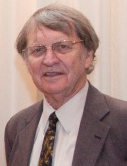
“The Public Acceptance of New Energy Technologies,” an essay co-authored by Clark University. Research Professor and Distinguished Scientist Roger E. Kasperson and Bonnie J. Ram ′75, M.A. ′82, of Ram Power LLC, appears in the Winter 2013 issue of Daedalus, the journal of the American Academy of Arts and Sciences.
In a Jan. 16 news release announcing the latest issue titled “The Alternative Energy Future, vol. 2” the Academy writes: “Limiting the effects of climate change will require a substantial transformation of the energy infrastructure. The Winter 2013 issue of Daedalus … explores an equally important but less appreciated requirement for reducing global greenhouse gas emissions: the societal transition that must accompany these technological changes.”
The Kasperson-Ram essay, which is among 13 contributions to the Daedalus edition, presents issues and recommends solutions surrounding a “public acceptance quandary” related to U.S. energy systems.
In their abstract of “The Public Acceptance of New Energy Technologies,” Kasperson and Ram write: “In the wake of ominous results about the impending path of climate change, and with gasoline prices hovering around four dollars per gallon, the 2012 presidential and congressional campaigns are full of claims and counterclaims about the transformation of the U.S. energy system. Although much discussion has centered on the need for new energy technologies, this debate as yet has been narrow and limited. Meaningful deployment of any technology will raise questions of public acceptance.… Little is known about how diverse publics in the United States will respond to the advent of new energy sources, whether they involve a ‘second renaissance’ for nuclear power, a dash to embrace hydraulic fracking for oil and natural gas, or emerging prospects for renewable energies like wind and solar power. Yet public acceptance will determine the outlook. …”
This latest volume of Daedalus is a companion to the Spring 2012 issue, which examined the nation’s history of underpricing energy relative to its societal costs. The issues are part of the American Academy’s ongoing project on the Alternative Energy Future, which is exploring how the social sciences can help to overcome behavioral and regulatory obstacles to the introduction of clean energy technologies. Prof. Kasperson, of the George Perkins Marsh Institute at Clark University, has focused his research in recent years on how the vulnerability of people, places and ecosystems can be better understood. He was inducted as a fellow of the American Academy of Arts and Sciences in 2004.
Working with colleagues at Clark University, Harvard University, the Stockholm Environment Institute, and the University of South Carolina, Kasperson is preparing a stronger conceptual base for efforts at analysis and assessment and for management initiatives aimed at more robust approaches to reducing vulnerability and building resilience.
A current project, under the coordination of Harvard, involves developing strategies for bridging the gap between the worlds of science and practice. A second project involves the formulation of a conceptual framework for incorporating sustainability into several sectors of European environmental policy.
A third National Science Foundation project, begun in 2005, involves the creation of improved methods for analyzing and managing highly uncertain risks. Included in this is a continuing interest in how adaptive management strategies can be used to improve societal anticipation and response to terrorist actions.
Since its founding in 1780, the American Academy has served the nation as a champion of scholarship, civil dialogue, and useful knowledge. As one of the nation’s oldest learned societies and independent policy research centers, the Academy convenes leaders from the academic, business, and government sectors to address critical challenges facing our global society.
Founded in 1887 in Worcester, Massachusetts, Clark University is a small, liberal arts-based research university addressing social and human imperatives on a global scale. Nationally renowned as a college that changes lives, Clark is emerging as a transformative force in higher education today. LEEP (Liberal Education and Effective Practice) is Clark’s pioneering model of education that combines a robust liberal arts curriculum with life-changing world and workplace experiences. Clark’s faculty and students work across boundaries to develop solutions to contemporary challenges in the areas of psychology, geography, management, urban education, Holocaust and genocide studies, environmental studies, and international development and social change. The Clark educational experience embodies the University’s motto: Challenge convention. Change our world. www.clarku.edu
